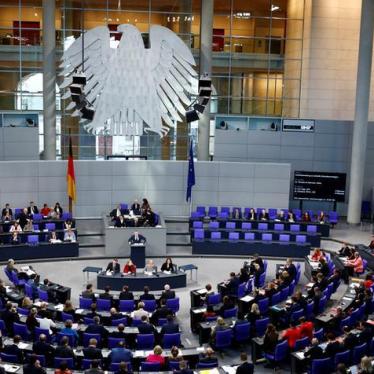The German parliament amended two laws on June 10th granting enhanced surveillance powers to segments of the federal police and intelligence services. They allow the use of spyware to hack into phones and computers circumventing encryption used by messaging applications such as WhatsApp and Signal, raising concerns about the right to privacy.
The new federal police law allows interception of communications of “persons against whom no suspicion of a crime has yet been established and therefore no criminal procedure measure can yet be ordered”. This fails to ensure the necessary protection against unjustified and arbitrary interference in people’s privacy, required under international law. Human Rights Watch and the United Nations have pointed out the importance of encryption and anonymity for data protection and the right to privacy.
The government argues that new legislation is needed to keep up with technological developments and claims the new powers are to help federal police stifle human trafficking and undocumented migration.
But as several branches of the German police force and intelligence are facing allegations of infiltration by right wing extremists, privacy concerns are ever more sensitive. Since 2018 the contents of several racist chatgroups among officers have become public, which just this month led the state of Hesse to disband one of its most elite special units. From 2018 onward, private addresses of public figures speaking out against racism had been accessed from police computers in Hesse resulting in direct threats by right wing groups. Allowing police even greater access to private information in the name of tackling migration creates deeper risks of abuse.
In 2008, the German Constitutional Court struck down the use of spyware by defining a “right to ensured confidentiality and integrity of information technology systems.” But the government’s new measures push the limits of surveillance. A 2017 law boosting another intelligence agency’s surveillance power is currently under review by the Constitutional Court.
By abusing security vulnerabilities in devices to plant spyware, Germany’s government makes digital communication less secure – and more vulnerable to attacks. Civil society organizations, opposition parties, and even senior members of the ruling coalition have publicly condemned the new laws. The government should retract them before they enter into force to prevent digital communications from becoming insecure and endangering the rights of users.









